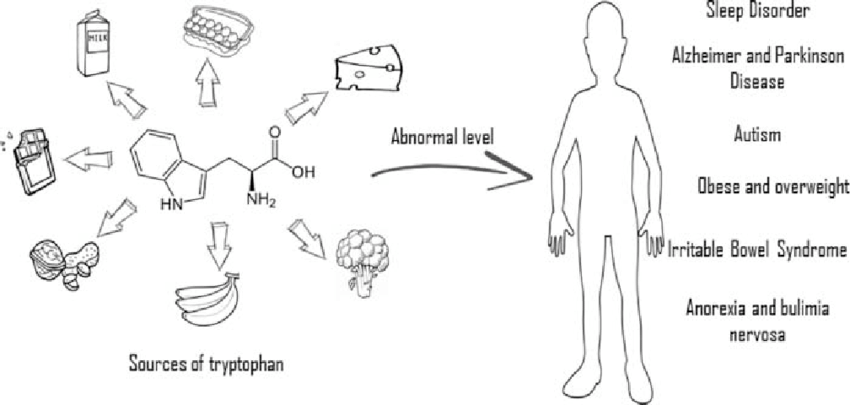Imagine that you have decided to embark on a health and fitness journey where you incorporate eating healthy balanced meals and completing frequent exercises. You’re doing great and on target to achieve your goals. To celebrate your success so far, you decided to treat yourself. After all, it’s the weekend and it boosts morale to celebrate your wins! So, you decide to order takeout using the Deliveroo app, hmm what shall you get? Let’s go with a Five Guys meal which includes a juicy cheese and bacon burger, paprika chips, and pistachio milkshake. Yum! This meal instantly peaks your brain pleasure centres! But not too long after you start to feel sleepy and fatigue sets in. What is happening and what is causing this feeling of postprandial somnolence or what we describe as “food coma”?
The mechanisms that are involved in postprandial somnolence are not well known however, there are many factors that can contribute to postprandial somnolence such as changes in the levels of specific cellular proteins, hormones, blood flow, brain chemicals, inflammation as well as the body’s internal clock. Additionally, the composition of the meal can contribute to post-meal sleepiness, for example meals rich in protein and carbohydrates can lead to an increase in tryptophan in the blood1. Tryptophan is an essential amino acid (meaning that we do not produce it but need to get it from our diet) that is required for the proper function of the brain-gut axis and immunology. Tryptophan is also involved in the production of melatonin and serotonin, which are known regulators of satiety and satiation. Furthermore, melatonin promotes sleep and is involved in regulating caloric intake. The increase in these hormones could be contributing to the post-meal sleepiness that we experience2,3.
Let’s explore tryptophan further, this amino acid is integral in various eating and mood disorders. We’ve heard about obesity and the various biological and environmental factors that contribute to this disorder. It is characterised by insulin resistance, immune-related systemic inflammation caused by the adipose tissue (which is very metabolically active) and hyperlipoproteinemia and is associated with altered tryptophan metabolism2. Tryptophan is also involved in the kynurenine pathway where proinflammatory cytokines stimulate the enzyme indoleamine-2,3- dioxygenase (IDO) leading to the breakdown of tryptophan. TRP 2,3-dioxygenase (TDO) which is stimulated by stress hormones (e.g., cortisol and oestrogen) is also involved in this pathway. It was suggested that this pathway (that results in the reduction of tryptophan and accumulation of kynurenine) can cause or worsen the progression to obesity. Additionally, the kynurenine pathway also causes inflammation. However, there are contradictory studies that show some nuanced differences when looking at tryptophan’s activity in relation to the circulating levels in obese individuals2,3. Moreover, other studies have shown that increased levels of kynurenine have been linked to various mental disorders including major depressive disorder, bipolar disorder, and schizophrenia4.
When looking at the best ways for treating obesity or losing weight, it might be a good idea to incorporate tryptophan supplementation with calorie restriction along with an increase in physical activity. This is due to the high levels of tryptophan which can lead to an increase in serotonin production which can alleviate the symptoms of depression observed in individuals that struggle with losing weight. This improved mood can help to motivate individuals to keep going and achieve their health and fitness goals. Additionally, physical exercise can help to remove the build-up of kynurenine in the brain. This will help to lessen the detrimental effects of high kynurenine levels by improving an individual’s emotional state and reducing the inflammation which will then prevent the negative feedback loop that led to the production of kynurenine2,3,5.
In conclusion, obesity is associated with low levels of plasma tryptophan which will result in low serotonin production. Therefore, the overeating that is associated with obesity could be due to a longer time spent eating to build up serotonin levels which will lead to satiety. Using tryptophan supplements during calorie restriction might be a good avenue for obesity treatment as this will improve mood and cause an individual to be more likely to stick to their health goal2.

References
- Here’s Why You Get Sleepy After Eating. https://www.sleepfoundation.org/nutrition/why-do-i-get-sleepy-after-eating#references-81168 (2023).
- Kałużna-Czaplińska, J., Gątarek, P., Chirumbolo, S., Chartrand, M. S. & Bjørklund, G. How important is tryptophan in human health? Crit Rev Food Sci Nutr 59, 72–88 (2019).
- Oxenkrug, G. Insulin Resistance and Dysregulation of Tryptophan–Kynurenine and Kynurenine–Nicotinamide Adenine Dinucleotide Metabolic Pathways. Mol Neurobiol 48, 294–301 (2013).
- Marx, W. et al. The kynurenine pathway in major depressive disorder, bipolar disorder, and schizophrenia: a meta-analysis of 101 studies. Mol Psychiatry 26, 4158–4178 (2021).
- Cervenka, I., Agudelo, L. Z. & Ruas, J. L. Kynurenines: Tryptophan’s metabolites in exercise, inflammation, and mental health. Science (1979) 357, (2017).
